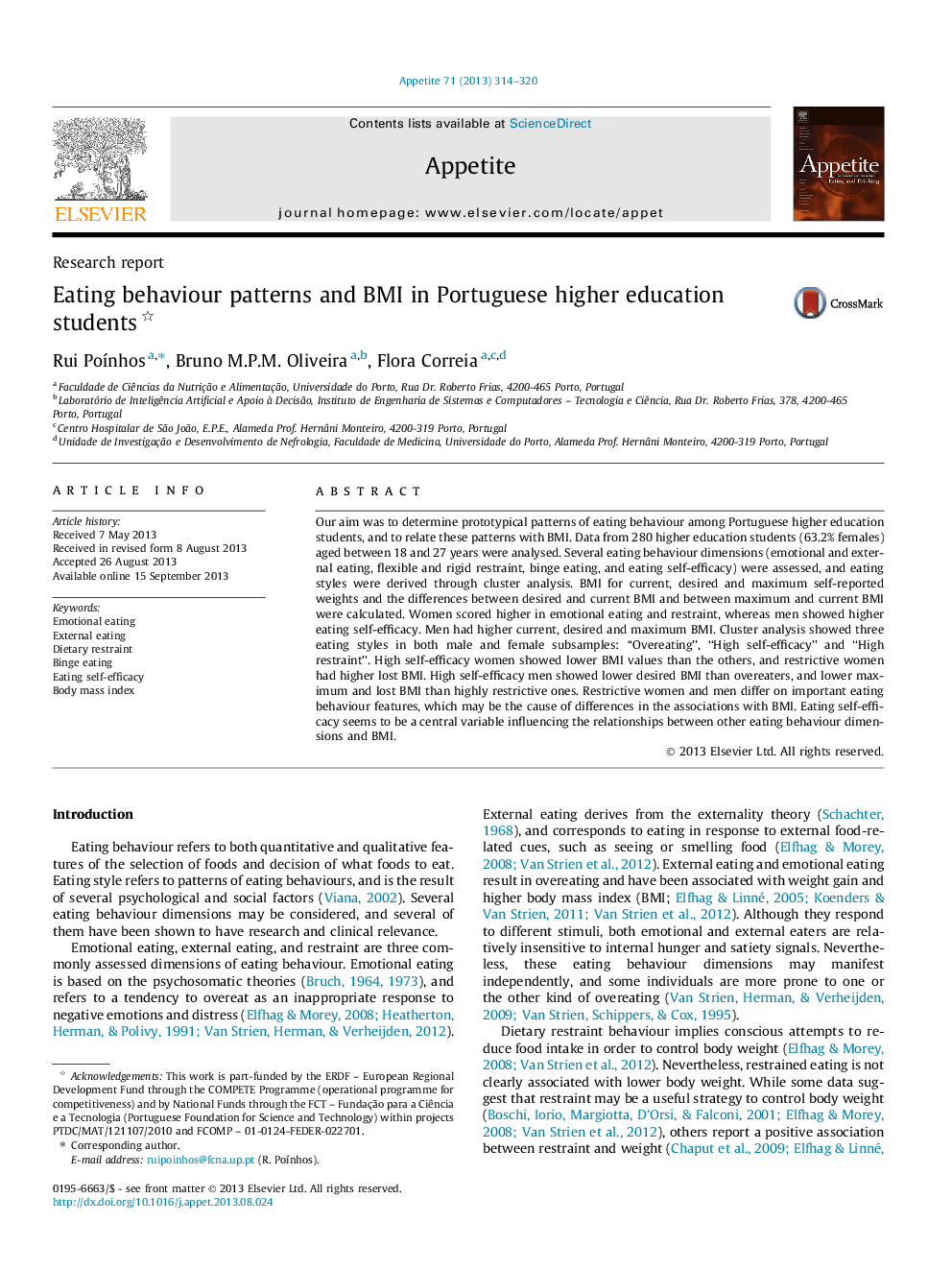| Article ID | Journal | Published Year | Pages | File Type |
|---|---|---|---|---|
| 7310923 | Appetite | 2013 | 7 Pages |
Abstract
Our aim was to determine prototypical patterns of eating behaviour among Portuguese higher education students, and to relate these patterns with BMI. Data from 280 higher education students (63.2% females) aged between 18 and 27Â years were analysed. Several eating behaviour dimensions (emotional and external eating, flexible and rigid restraint, binge eating, and eating self-efficacy) were assessed, and eating styles were derived through cluster analysis. BMI for current, desired and maximum self-reported weights and the differences between desired and current BMI and between maximum and current BMI were calculated. Women scored higher in emotional eating and restraint, whereas men showed higher eating self-efficacy. Men had higher current, desired and maximum BMI. Cluster analysis showed three eating styles in both male and female subsamples: “Overeating”, “High self-efficacy” and “High restraint”. High self-efficacy women showed lower BMI values than the others, and restrictive women had higher lost BMI. High self-efficacy men showed lower desired BMI than overeaters, and lower maximum and lost BMI than highly restrictive ones. Restrictive women and men differ on important eating behaviour features, which may be the cause of differences in the associations with BMI. Eating self-efficacy seems to be a central variable influencing the relationships between other eating behaviour dimensions and BMI.
Keywords
Related Topics
Life Sciences
Agricultural and Biological Sciences
Food Science
Authors
Rui PoÃnhos, Bruno M.P.M. Oliveira, Flora Correia,
